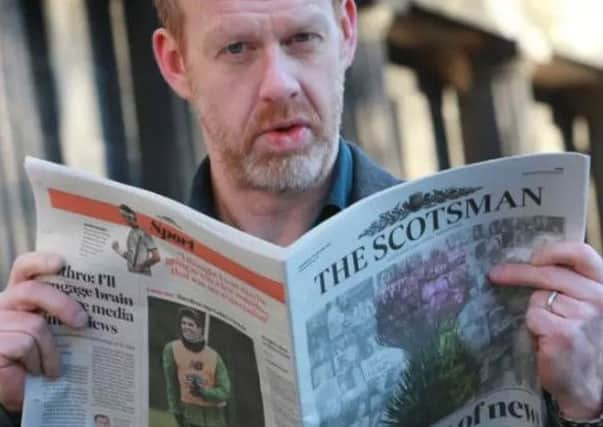Nick Freer: Scotland can be a front runner in fintech
This article contains affiliate links. We may earn a small commission on items purchased through this article, but that does not affect our editorial judgement.


Financial technology like ATMs and personal identification numbers (PINs) are classic examples of what is now termed “fintech” and while Scotland played a significant role in the development of the ATM and the PIN, our report card on fintech is arguably “could do better”; a child with potential who finds it difficult to concentrate on the job in hand and has fallen behind their classmates.
Having spent last week speaking to many of those more in the know than me, the picture painted is one of a nascent industry that finds it difficult to collaborate and identify the key opportunities and challenges, never mind put in place a coherent strategy and action plan.
Advertisement
Hide AdAdvertisement
Hide AdOne industry insider suggests this is no surprise when you consider that banking and financial services players – who are taking the lead on fintech in Scotland, along with the Scottish Government and its enterprise agencies – are components of one of the least collaborative sectors in the UK.
In the oil and gas sector, to give something of a crude example (excuse the pun), it is not unusual to see BP and Shell launch operational partnerships to further their own business strategies but you could hardly imagine RBS and Lloyds doing something similar. Yet it is the banks in Scotland, now mainly run from power bases in London, who are key constituents of the working groups designing fintech strategy north of the Border, along with asset managers like Standard Life and Aberdeen Asset Management.
It’s easy to see the conflict here for the financial sector and government alike as it’s generally accepted that advances in fintech and automation will lead to significant job losses in back office functions.
Turkeys voting for Christmas and banks helping to further a nation’s fintech agenda, anyone? To use a Game of Thrones analogy, they know winter is coming and, like the next series of the cult HBO series, it’s a horror show where cannibalism by largely unknown forces is bound to be rife and is most certainly going to be bloody. Rather than being devoured by zombies, a more drawn-out decline will come from disruptive start-ups populated by coders and developers displaying human characteristics armed with killer algorithms and artificial intelligence.
Scotland is home to some promising early stage and high-growth fintech ventures – start-ups like cash flow forecasting app Float, data analytics specialist Aquila Insight and peer-to-peer SME lender LendingCrowd. But as government chiefs readily admit in private, we lack critical mass and the glass is definitely half empty rather than half full.
To give them credit (last pun I promise), RBS get points for launching a fintech hub at Gogarburn. While for many a fintech hub in the HQ of a high street bank is a contradiction, it’s reasonable to say we need to stack as many building blocks as possible in our tech ecosystem to give fintech the best chance to flourish.
To improve our next report card, we need to attract people and organisations to Scotland who have been there and done it in fintech, like a challenger bank or an accelerator such as London-based Level39, get more of our startups roped into steering groups that are currently conspicuous by their absence and spend more time thinking about what our niche in fintech could be.
Advertisement
Hide AdAdvertisement
Hide AdAs we continue to build an enabling ecosystem, the chances also improve of us producing a fintech start-up that scales up and would in itself help to move us forward from the back of the class.
• Nick Freer runs communications and business advisory agency, the Freer Consultancy
